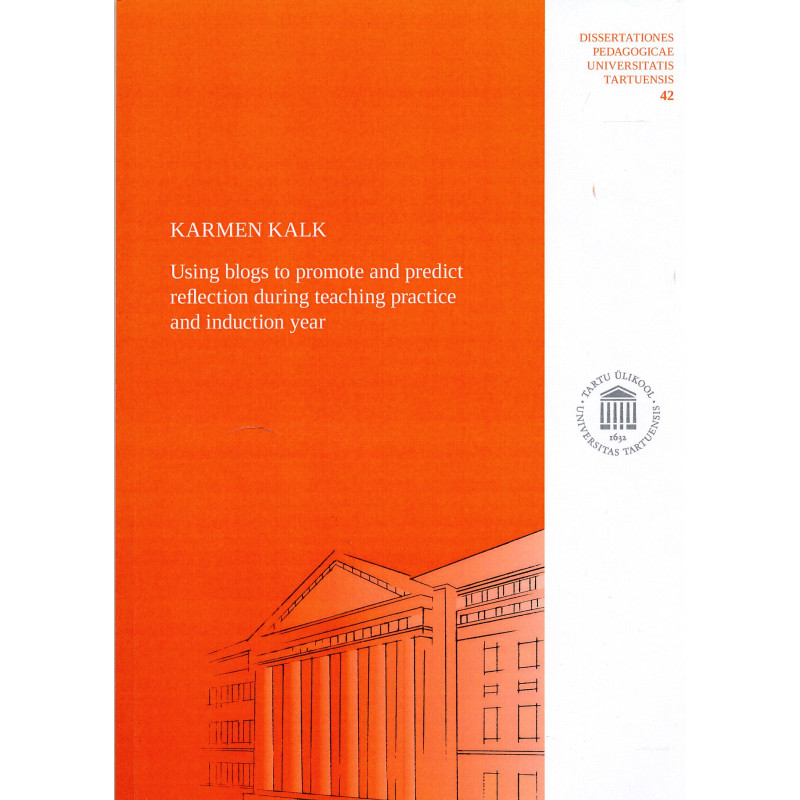



Tartu : University of Tartu Press, 2022
ISBN: 9789949038916
138 pages : illustrated
Dissertationes pedagogicae Universitatis Tartuensis ; 42
Softcover new book
Doctoral theses defended at the University of Tartu, summary in Estonian
Reflection skills are related to the professional development of teachers, and therefore attention is being paid to it in Estonian teacher education. It is important to promote reflection through social interaction during teaching practice and the induction year. Reflection can be supported using information and communication technology tools, such as blogs. The aim of the dissertation was to find out how blogs could be used during the teaching practice and induction year to promote reflection; in more detail, how the different characteristics of the participants and the blogging are related to reflection in blog posts. The data were collected using questionnaires, from blog posts and collective blogs. The results of the study showed that different characteristics of learners, blog groups and tutors were related to reflection in the blogs. A high level of blogging activeness among the participants could be one of the most supportive factor of learner reflection. Therefore, active communication in a blog can provide emotional support and could lead the learner to write and reflect more deeply. However, social communication in a blog could inhibit learner reflection. Attention should be paid to analysing successes or failures in the blog. More written texts about successes by learners encouraged reflection, while written texts by tutors about successes and their own experiences could have an inhibitory effect on learner reflection. Nevertheless, it is also necessary to analyse and learn from unsuccessful experiences. In addition, the results showed that a small number of learners, strong social relationships between learners, and the use of tasks in a blog might promote learner reflection. It is also important to consider the examples provided by peers and tutors in supporting reflection. Participants in a collective blog can behave similarly to other learners and the tutor can give excellent examples of written reflection. The value of the dissertation lies in the importance and novelty of the results, as a blog can be an effective tool to support reflection in teacher education, but the impact of different characteristics on learner reflection in a blogging environment has been studied little. Furthermore, the suitability of the reflection scales used in the dissertation were checked for the first time in the Estonian context. The dissertation presents practical and methodological implications, which should be taken into account when assessing and supporting learner reflection in teacher education.